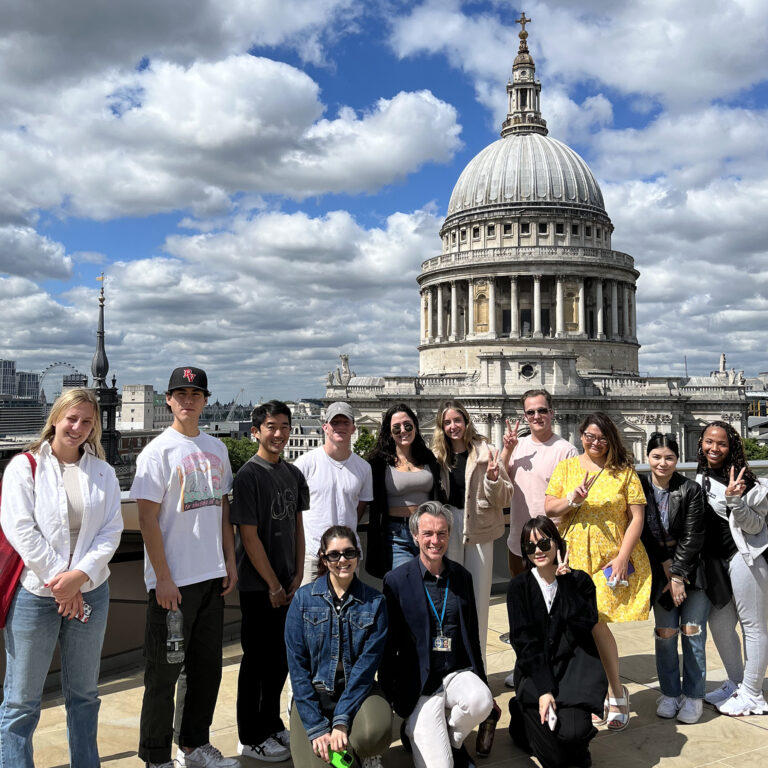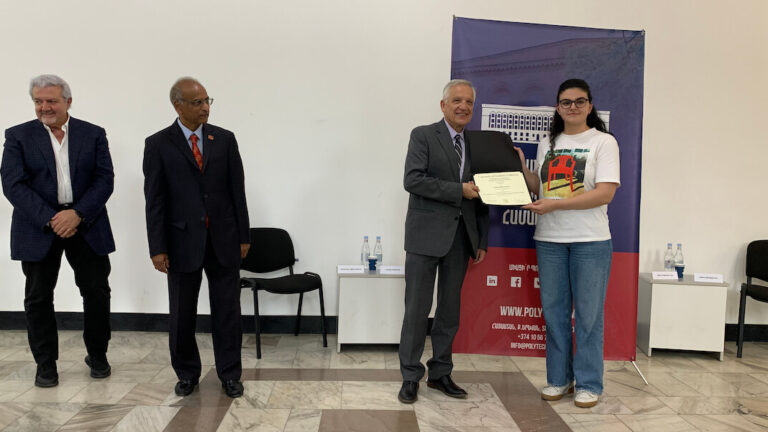
INFOGRAPHIC VECTOR CREATED BY FREEPIK / DIANA POSTOLACHE
iPodia, the power of “i” learning brings together the largest global classroom to date
iPodia, the power of “i” learning from USC Viterbi School of Engineering, brings together the largest global classroom to date.
Eleven universities. One “classroom.”
What is iPodia? The answer is in the name.
The “i” stands for inverted, interactive, and international, which work together to form an inclusive pedagogy.
Created at USC Viterbi by Professor Stephen Lu, David Packard Chair in Manufacturing Engineering, in 2008, iPodia is a “global classroom” that eliminates borders, attempting to bring students from all around the world into the same learning space through the power of technology.
The Fall 2017 class brings together 11 universities out of the 13 in the greater iPodia Alliance, not including Australia’s University of New South Wales which is auditing the class with plans to become an official member. This is the largest iPodia classroom to date.
“If we are able to interconnect the classroom using the Internet, I bet in the next few decades – or even shorter – the classroom learning will be very very different. And then, the whole world of education will be change,” Lu said.
iPodia brings together students from all over the world, despite geopolitical tensions. This year, for instance, Israeli students are taking the same class with Qatari students while students in Taiwan are interacting with students in China.
So what attracts these major universities to this USC platform? One concept: interconnectivity. Students at different campuses, in different time zones, all complete the same readings individually. They then take a quiz on the readings and provide feedback on the material. “The purpose of these questions is not to give them a grade but rather to solicit their perspective,” said Lu.
iPodia then uses a software developed in-house to group students into small cohorts based on their responses. It functions like a Facebook algorithm. However, instead of matching them up based on similarity, it puts students together with those who had the most different opinions from their own study.
The result? A colorful exchange of different ideas that could not be replicated in any other educational setting.
Picture it. Jenny from USC thinks that the best way to use renewable energy is through solar panels. Elena from UNAM (National Autonomous University of Mexico) thinks wind is the best and Yael from Technion believes that hydropower is the way to go. They debate together in discussion cohorts. They learn from each other. They work together to come up with an idea and incorporates all three energy sources. Sometime during this conversation Jenny, Elena, and Yael also discover that they all love the musical “Hamilton” or that they all hate how easily the iPhone screen cracks. The human bonds created from peer learning are an important iPodia byproduct.
Students have their discussion over a period of two days, during which they may revise their opinions. Based on that, the professor will prepare further discussion materials for tomorrow’s class. “At the beginning, I give them what I think they need to learn. But at the end of the cycle, I see what they want to learn,” Lu said.
Lu’s method requires teachers to innovate along with the students.
iPodia’s interconnective pedagogy works so well that two former classmates in Taiwan and China got married. “This class may not get you a good job, but it could get you a good husband or wife,” Lu joked.
The class culminates with an optional overseas trip.

This year, there will be two: USC will host around Thanksgiving and the University of Patras, Greece will host in December.
Caitlin Reck took the class two years ago because she was interested in global innovation, a passion she continues to pursue as a student assistant for the class. “Innovation is a universal topic, and all perspectives on innovation are equally valid,” she said.
Angela Zhang, another student assistant, and a junior in electrical engineering, took the class with Reck. The two women were in the same project group and received the opportunity to present at the ICAN conference in Paris, an international gathering that explored advances in precision medicine
“I was born in Tucson and moved to Beijing when I was 13. So when I heard that Tsinghua and PKU – both top Chinese universities – were participating I was really interested,” Zhang said. “It’s cool to sit in the back of the class and ‘take’ the class a second time.”
It’s clear from speaking to the students that iPodia fosters more than just a global perspective, it also fosters compassion and collaboration in the pursuit of a better tomorrow.



